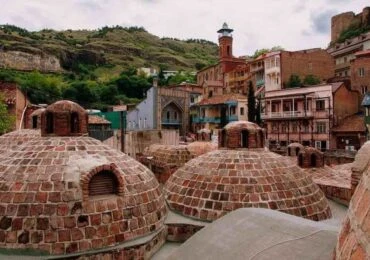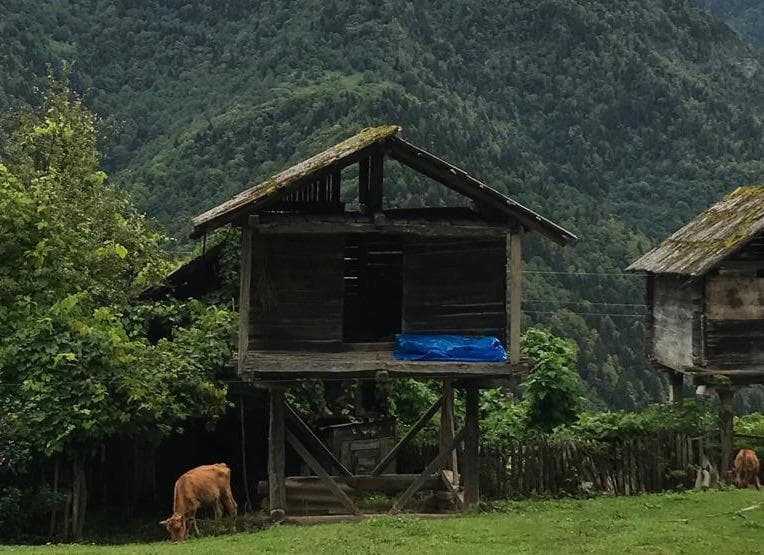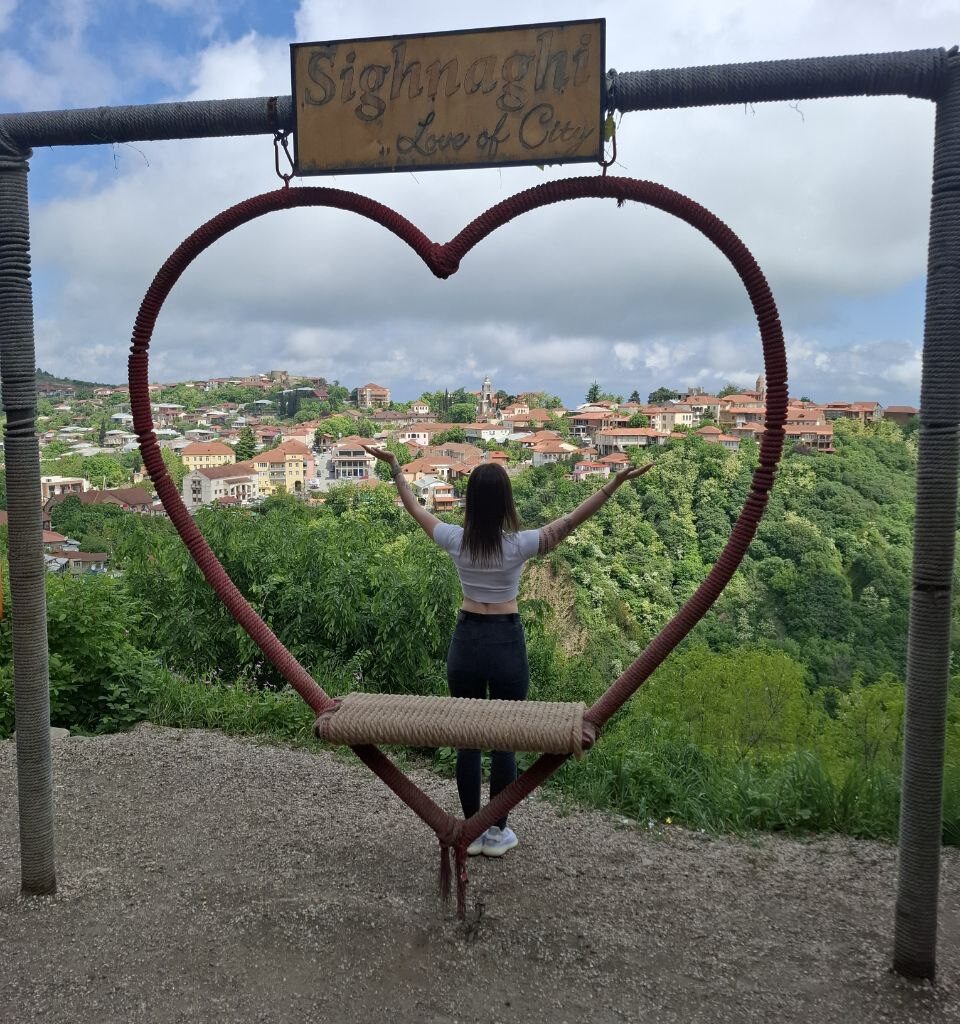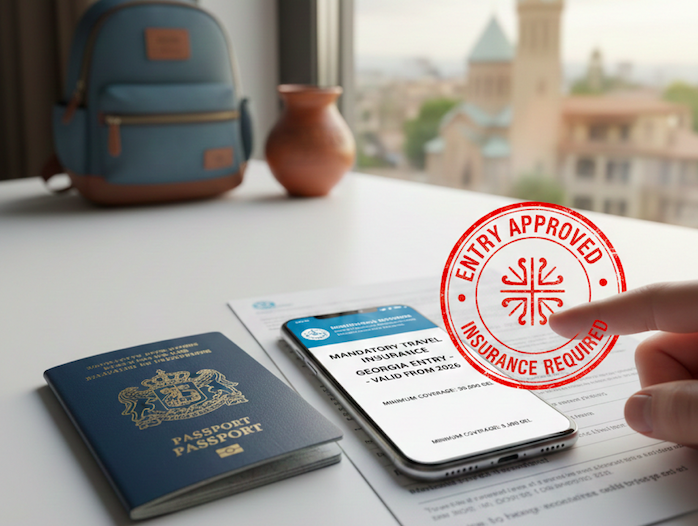Experience the Timeless Tradition of Tbilisi Sulphur Baths: Your Ultimate Guide to Wellness and History
Immerse yourself in one of Tbilisi’s most iconic and restorative experiences: the legendary Sulphur Baths. Nestled in the historic Abanotubani district, literally meaning “bath district,” these unique geothermal spas offer a blend of relaxation, cultural immersion, and remarkable health benefits, making them a must-visit for any traveler to the Georgian capital.

A Journey Through Time: Meaning and History
The story of the Tbilisi Sulphur Baths is intricately woven into the very fabric of the city’s origins. Legend has it that King Vakhtang Gorgasali, while hunting in the 5th century, discovered the natural hot springs when his falcon fell into one. Impressed by the warm water, the king decided to establish his new capital on this very spot. Thus, Tbilisi earned its name, derived from the Old Georgian word “tbili,” meaning “warm place,” directly referencing these geothermal springs that became the foundation for the city’s famous bathhouses.
While many bathhouses drew inspiration from traditional Persian-style baths, a key distinction in Tbilisi is that the water is naturally heated by the Earth’s geothermal activity, flowing from the ground at a consistently warm temperature. This natural bounty has captivated visitors for centuries. Even the celebrated Russian poet Alexander Pushkin, during his 1829 visit, lauded their splendor, proclaiming: “Not since I was born have I encountered the luxury of Tiflis’ baths.” His words perfectly encapsulate the enduring allure of this unique tradition.
The Science of Serenity: Health Benefits of Sulphur Water
Beyond their historical significance and relaxing atmosphere, the Tbilisi Sulphur Baths are renowned for their therapeutic properties. The mineral-rich water, particularly high in sulfur, is believed to offer a myriad of health advantages. Scientific studies on similar sulfur-rich waters suggest benefits for:
- Skin Conditions: Relief from ailments such as eczema, psoriasis, acne, and dry skin due to sulfur’s anti-inflammatory and antimicrobial properties, which can promote skin regeneration and improve elasticity.
- Joint and Muscle Pain: The warm water and minerals help to soothe sore muscles, reduce joint stiffness, and alleviate pain associated with conditions like arthritis and fibromyalgia by improving circulation.
- Circulation and Detoxification: The heat promotes improved blood circulation and aids in the body’s natural detoxification processes through sweating.
- Respiratory Health: Inhalation of trace hydrogen sulfide gas from the steam may help reduce airway inflammation, potentially benefiting those with conditions like asthma or bronchitis.
- Stress Reduction and Sleep: The tranquil atmosphere and warmth contribute to a calming experience, promoting relaxation and potentially improving sleep quality.
Planning Your Visit: General Information and What to Expect
A visit to the Tbilisi Sulphur Baths offers a range of experiences to suit every preference and budget. Here’s what you need to know to make the most of your trip:
Choosing Your Bathhouse:
The Abanotubani district boasts a variety of bathhouses, each with its own charm and amenities. Options range from traditional communal baths to luxurious private rooms. Some popular choices include:
- Orbeliani Baths (Chreli Abano): Known for its stunning blue-tiled, Uzbek/Persian-inspired facade, offering both private and public options. Many visitors book private rooms here due to their aesthetic appeal.
- Bathhouse No. 5: Often cited as one of the oldest and most authentic public bath experiences.
- Gulo’s Thermal Spa: A popular family-run choice, particularly praised for its traditional “kisi” scrub.
Types of Rooms and Pricing:
- Public Baths: The most budget-friendly option, typically starting around 20 GEL per hour per person. These are usually sex-segregated and offer a more communal, traditional experience.
- Private Rooms: More expensive but offer privacy and often better facilities. Prices generally range from 60-80 GEL per hour for a clean, spacious room, up to 200-500 GEL per hour for more luxurious and larger VIP rooms that might include cold plunge pools, saunas, and multiple showers. Private rooms are ideal for couples or groups. Prices are usually per room, per hour, making them more economical for groups.
Additional Services:
- Kisi Scrub (Exfoliation): Highly recommended for a truly authentic experience! A “Mekise” (bath attendant) vigorously scrubs your skin with a coarse mitt (“kisi” or “kisa”), removing dead skin cells and leaving your skin incredibly smooth and refreshed. This typically costs an additional 10-30 GEL per person. It’s an intense but rewarding process.
- Massages: Many bathhouses also offer various massage treatments, often starting from as little as 10 GEL per person.
What to Bring (and What to Leave):
- Essentials:
- Swimwear: Optional for private rooms (you can be naked if preferred), but recommended for public baths if you’re not comfortable with nudity.
- Towel, soap, shampoo, and slippers: You can bring your own to save money, or rent/purchase them at the bathhouse (usually a few GEL each).
- Bottle of cold water: Crucial for staying hydrated in the hot environment.
- What to leave behind:
- Silver jewelry: Sulfur can tarnish silver, so it’s best to leave any silver items at your accommodation.
- Valuables: While private rooms usually have a dry sitting area and can be locked, it’s always wise to minimize valuables brought with you.
Etiquette and Tips:
- Book in advance: Especially for private rooms and during peak season, booking ahead (online, via phone, or Facebook Messenger for some) is highly recommended to avoid disappointment.
- Arrive early: Aim to arrive 10-20 minutes before your scheduled time to check in, pay, and get settled. This ensures you get the full duration of your booked time.
- Shower before entering: It’s customary to shower thoroughly before entering the sulphur pools.
- Nudity: In public baths, same-gender nudity is common. In private rooms, you can choose to be naked or wear swimwear.
- Kisi scrub: If you book a kisi, the Mekise will enter your private room. It’s common to leave the door unlocked for them.
- Hydrate: Drink plenty of water throughout your session to prevent dehydration.
- Don’t rush: Allow yourself to relax and embrace the unique atmosphere. Some bathhouses recommend 15-minute intervals in the hot water, with breaks to cool down.
- Embrace the experience: While it might feel unusual at first, the sulphur bath experience is deeply rooted in Georgian culture and offers a truly memorable, healthy, and relaxing indulgence.
Getting to the Tbilisi Sulphur Baths (Abanotubani District)
The Abanotubani district is centrally located and easily accessible by various modes of transport:
- Metro: Take the metro to either Avlabari or Liberty Square stations. From both, it’s a pleasant 10-15 minute walk downhill to the bath district, offering scenic views of the Old Town.
- Bus: Several local buses stop directly in the Abanotubani district. Check local bus routes for the most convenient option from your location.
- Taxi/Ride-Sharing: Taxis and ride-sharing services are readily available throughout Tbilisi and can drop you off directly at the bathhouse entrance.
- Marshrutka (Minibus): While less common for direct access to Abanotubani for tourists, minibuses also serve the area.
No trip to Tbilisi is complete without experiencing the historic and rejuvenating Sulphur Baths. Prepare for an unforgettable journey into Georgian wellness and tradition!




